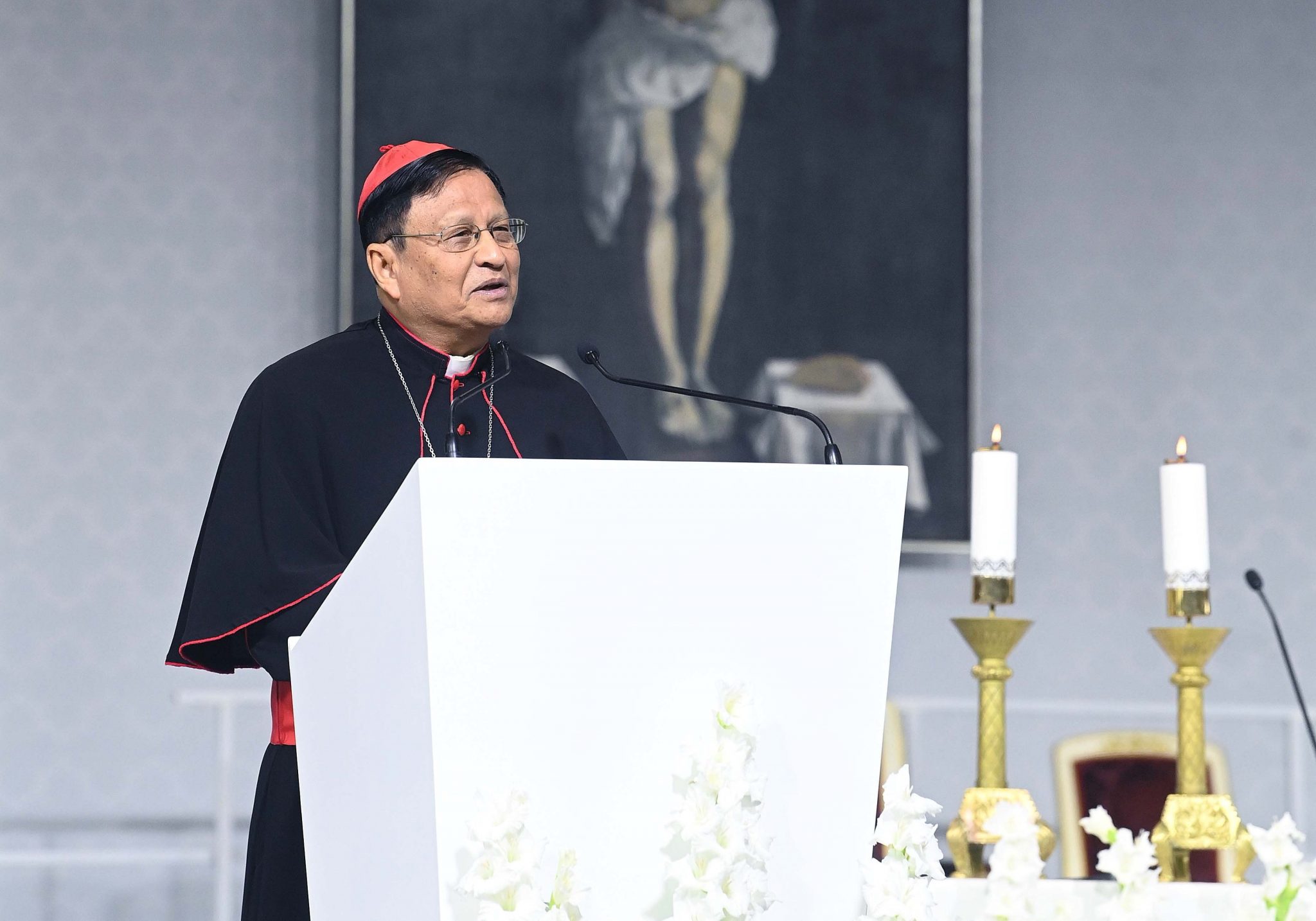
“The Budapest International Eucharistic Congress is a strong witness to a living and vibrant faith,” said Cardinal Charles Bo of Myanmar, adding that “…our languages may be different. But we are united in the message of Jesus.” The 72-year-old Cardinal Bo has been archbishop in the Myanmar metropolis of Yangon since 2003. In his remarks in Budapest, he again asked for prayers for the people of Myanmar, who have faced “conflict, covid, the collapse of the country, and climate disasters” in recent months.
This article was originally posted on our sister-site, Ungarn Heute.
The cardinal greeted the participants with “Jó reggelt!” (“Good morning” in Hungarian), asked them, “Hogy vagytok?” (“How are you?”), and then expressed his joy at having come to Budapest.
At the beginning of his speech, the cardinal praised Hungary for having shown patience and tolerance throughout its long history. He commemorated St. Stephen, the long line of Hungarian saints, and the way this nation has kept the faith in the face of historical adversities, Magyar Kurír reported. He also spoke about how Hungary managed to bring the virus under control and that after the epidemic we can now celebrate the victory of perseverance together.
Bo recalled the challenges of poverty, the COVID pandemic, and conflicts in his home country.
“I am firmly convinced that this congress is the starting point for worldwide healing,”
said the cardinal and president of the Federation of Asian Bishops Conferences. The cardinal’s most important message was one of patience.
“Those who have patience turn every challenge into a life-changing opportunity,”
he said. Patience is also “the only way this world can live in peace,” referring to historical developments in which “impetuous, impulsive, impatient leaders have led the world to catastrophe.”
Cardinal Bo described the centuries-old devotion to the Blessed Virgin Mary as the untangler of knots, which is also supported by Pope Francis himself. In the well-known painting, an angel offers Mary a rope full of knots, while another angel takes the other half, already smoothed by Mary, and offers it to the people. “With patient obedience, Our Lady unties the knots that represent the spiritual and physical difficulties caused by others or by ourselves, as well as the seemingly unsolvable problems caused by the world itself.”
The cardinal also stressed the significance of the sacrament of the Eucharist for the faithful.
“As the source and summit of spiritual life,” the faithful were deprived during the pandemic. According to the cardinal, however, the Church’s understanding of the Eucharist goes beyond this point. In the spirit of combining Eucharistic devotion and charitable work, there is a need for a “global Eucharist of common resources, economic and ecological justice – a world in which God’s justice triumphs,” Bo said, reported kathpress.at.
“The Eucharist is a prophetic cry that goes out from millions of altars: a cry for justice, for a war against poverty, against hunger, against the oppression of the weak.”
Myanmar needs healing.
Catholics in the country have also suffered greatly, and “churches have been attacked,” the cardinal said. “Many of our people are refugees in our own country.” He said the Catholic Church in Myanmar is trying to accompany people “in their tears and their brokenness.” “Our nation needs healing,” Bo further stressed.
The Myanmar cardinal quoted Pope Francis, who himself sees the pandemic as a lesson about the consequences of selfishness and wasteful living, and a choice between continuing on the same path or embarking on a new one.
“And indeed, during Covid, we learned a lot about patience, but after the mental and emotional darkness, we can also experience rebirth and see the value of our lives more realistically,”
the cardinal said, finally adding that “God has been patient with people countless times in salvation history, and Jesus himself was patient in situations of rejection or refusal.”
Sources: kathpress.at, iec2020.hu
Featured image via Noémi Bruzák/MTI